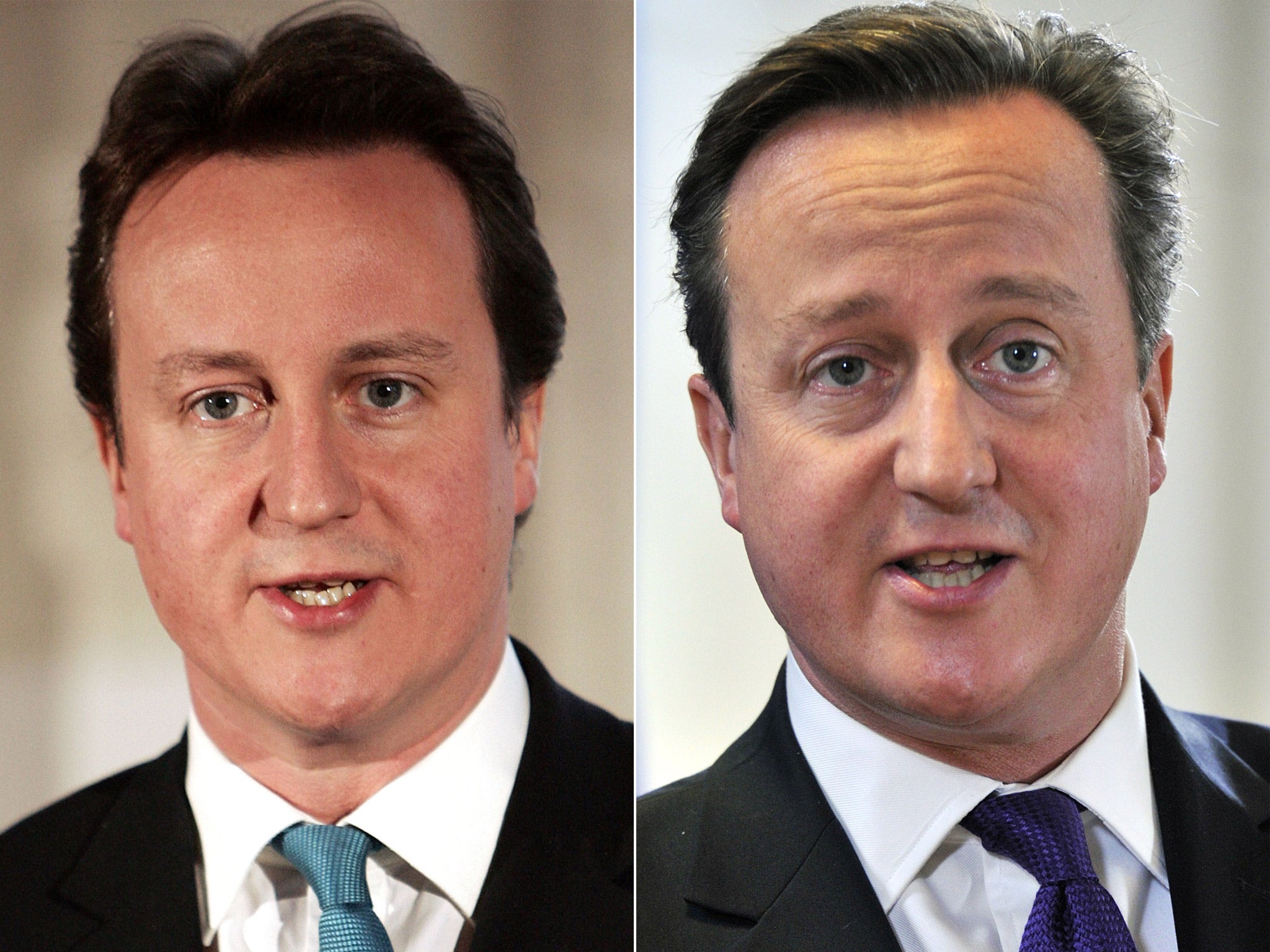Because he's worth it: Why hair matters so much to politicians
Few get closer to the Prime Minister than his barber, so no wonder Cameron's has been awarded with an MBE. And hair has always been big in politics, explains Andy McSmith

Your support helps us to tell the story
From reproductive rights to climate change to Big Tech, The Independent is on the ground when the story is developing. Whether it's investigating the financials of Elon Musk's pro-Trump PAC or producing our latest documentary, 'The A Word', which shines a light on the American women fighting for reproductive rights, we know how important it is to parse out the facts from the messaging.
At such a critical moment in US history, we need reporters on the ground. Your donation allows us to keep sending journalists to speak to both sides of the story.
The Independent is trusted by Americans across the entire political spectrum. And unlike many other quality news outlets, we choose not to lock Americans out of our reporting and analysis with paywalls. We believe quality journalism should be available to everyone, paid for by those who can afford it.
Your support makes all the difference.Say this for David Cameron: at least his Government has shown proper respect for an old and respected profession by awarding celebrity barber Lino Carbosiero a MBE. Cutting the hair of the famous is a sensitive task. Who else but the barber stands over a Prime Minister and talks down to him?
And what secrets can the man behind the barber's chair glean? King Lowry Lynch, according to an old Irish myth, would have his hair styled once a year, after which the barber would be executed, lest he reveal the dark secret that the King had horse's ears. King Midas's barber, in Greek mythology, was privy to a similar secret.
Mr Carbosiero, who charges £90 a snip for men and £150 for women, is the only person outside the Cameron household who knows the secret of the bald spot that is rumoured to appear and disappear at different locations around the Prime Minister's head. Yesterday, on Sky News, he denied that it even existed. Clearly, this man performs exceptional services for the Crown.
The revelation of his MBE was not the only piece of news to emerge this month concerning politicians and their hair. A document released a few days ago from the National Archives revealed that Margaret Thatcher had no fewer than 118 hair appointments in 1984 alone – an average of one every three days.
But ever since women have been in politics, it has been assumed that they must take good care of their hair.
That message was forcibly conveyed to the future Labour Cabinet minister Shirley Williams in the 1930s, when she was only eight years old, and Lady Astor, the first woman to take up a seat in the Commons, told her bluntly: "You will never get on in politics, my dear, with that hair." For a time, she rather bravely ignored that warning and picked up the nickname the "Shetland Pony".
But male politicians also need something substantial on top, because it is assumed that a bald man cannot win a UK general election. William Hague, whom the Tory MP Alan Clark described as "looking like a golf ball", was only the second Conservative Party leader in the 20th century not to become Prime Minister. The third was his equally bald successor, Iain Duncan Smith.
Thatcher's predecessor, Edward Heath, had a fine head of hair, of which he was shamelessly proud. He even boasted to a Conservative annual conference that "the barbers of West Bromwich have banded together and come to the conclusion that, seen from the back, my haircut was the best in the country". He then apologised to the representatives in the hall that this "splendid panorama" was visible only to members of the national executive on the stage behind him.
In 1961, William Troyack, master of the London branch of the Incorporated Guild of Hairdressers, Wigmakers and Perfumers, explained the political power that lies in a barber's scissors. "A politician seeking to make a name for himself should create a characteristic hair style and stick to it for the rest of his life," he said. "It becomes his trademark. People remember him by it.
"Dig back through history and you'll see what I mean. Disraeli wore ringlets. Lloyd George had bardic locks. Macmillan waves his and there are peaks at the sides."
He was speaking soon after John F Kennedy's sensational victory in the US presidential election over the more experienced and better-known Richard Nixon. Troyack had a simple explanation for how it came about: Kennedy had the better haircut.
Join our commenting forum
Join thought-provoking conversations, follow other Independent readers and see their replies
Comments